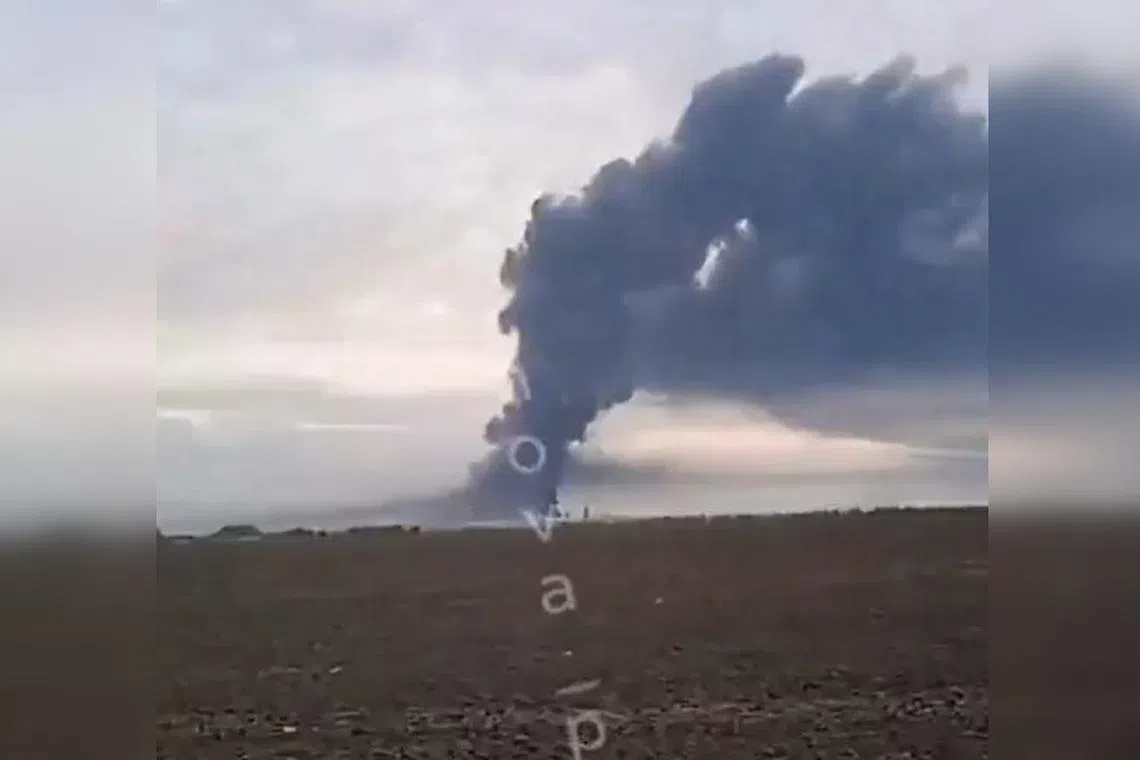Russian fuel prices surge after Ukraine hits refineries
Sign up now: Get ST's newsletters delivered to your inbox

A screengrab from a video circulating on social media shows what is said to be an oil refinery fire in Russia after the plant was hit by Ukrainian drones.
SCREENSHOT: X
- Russian fuel prices are nearing record highs due to Ukrainian attacks on refineries and seasonal travel demand.
- Export bans and refinery disruptions in Afipsky, Ryazan, and Saratov have worsened fuel shortages, especially in southern and eastern Russia.
- The Russian Energy Ministry attributes price rises to seasonal demand and agricultural works, supporting extending the export ban.
AI generated
MOSCOW - Russian fuel prices are at near-record highs, stock exchange data showed on Aug 21, after a slew of Ukrainian attacks on refineries caused breakdowns during the travel season.
Ukraine routinely targets Russian refineries and oil depots to hamper Moscow’s ability to fund its invasion.
Recent hits have coincided with the summer holiday season and have contributed to higher rates of driving over train and air travel.
In a bid to tame prices, Russia, one of the world’s biggest oil producers, introduced a total ban on fuel exports in July, but it appeared to have little effect.
AI-92 and AI-95, the two most popular fuel blends in Russia, were trading at around 72,663 and 81,342 thousand roubles per tonne (US$900 and US$1,000), close to their all-time highs, according to trading data from the Saint Petersburg commodities exchange.
Russian broker BKS cited “the high season, repairs and new accidents at the refineries” as reasons for the price surge, noting higher demand for fuel because people tend to drive more during the summer months.
Additionally, Ukrainian attacks have also disrupted air and railway travel, further contributing to the surge, the brokerage said.
“Recent disruptions at the Afipsky, Ryazan and Saratov oil refineries could have reduced the petrol supply on the market,” it added, saying this could have probably exacerbated the situation.
Ukraine claimed to have hit the three refineries this month, but there was no official comment from Russia on any stoppages there.
The Russian energy ministry said the price rise was due to “high seasonal demand and agricultural works”, and supported extending the ban to September as well, without mentioning Ukrainian strikes or any repair work on refineries.
The fuel shortage is the most acute in Russia’s south and far east, as well as in the part s of Ukraine held by Russian troops, local authorities said. AFP


